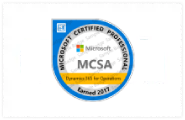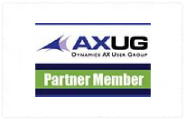Any company that deals with the multi-tiered global supply chain on a regular basis must have a strong logistics department. A good logistics system can manage warehouse workflows, shipping routes and maps, vehicle maintenance, and transportation operations.
Enterprise resource planning is useful for better managing logistics when working with wholesale or distribution trades (ERP). Accounting, human resources (HR), and customer relationship management are all examples of routine business tasks that can be automated (CRM). However, by managing your company’s inventory and supply chain, you can improve logistics.
ERP software can improve logistics in a variety of ways, including:
- Administration of the supply chain
- Financial Disclosure
- Shipping and Relocation
While some logistics ERP options are created and marketed solely for businesses as “logistics software,” other options may include sector-neutral ERP solutions that can provide all of the tools a logistics company requires. It is critical to determine whether the software under consideration is solely focused on inventory and/or supply chain management, or if it includes additional modules to automate all of your company’s operations.
How ERP in Logistics helps
ERP software provides a unified, comprehensive view of all your business operations. This oversight allows for better logistics management by taking the following factors into account:
Inventory and warehouse management
To begin, the real-time tracking and management tools provided by ERP software help you gain control of your current inventory. Inventory management modules keep track of all data related to the goods that your company manufactures, purchases, stores, or sells. This can simplify product pricing by allowing you to make adjustments based on current sales trends or changes in manufacturing costs.
Another important aspect of logistics is warehouse management (WMS). ERP systems improve order management by automating purchase orders for required items and tracking deliveries as they leave your facility, making warehouse management easier with effective stock control and pick/pack improvements.
Inventory systems with traceability tools can locate and identify various items throughout the warehouse using bar-coding, serial numbers, lot numbers, or sophisticated RFID tracking to maintain the most efficient stock levels.
Supply Chain Management
Then, use an ERP to manage the movement of your inventory throughout the multi-tiered supply chain. Modules for supply chain management enable the organization, supervision, and execution of procedures required to support the production and distribution of finished goods. You may discover that storing specific products in a warehouse rather than sending them ahead to distributors saves money. Alternatively, you could consider partnering with a third-party logistics provider to streamline localized deliveries.
Shipping and Logistics
Transportation is one of the most important steps in getting your goods to paying customers. ERP systems with transportation modules plan, execute, and optimize the physical movement of goods from the manufacturer to the final destination—whether it’s a storage warehouse or directly into the hands of the customer.
One of the primary advantages of using an ERP with transportation and shipping features is the ability to more effectively plan and optimize delivery routes. For example, you may discover a more efficient method of transporting goods, which will save you money and time and result in a higher ROI over time.
These ERP tools can also be used for basic fleet management, which focuses on keeping your fleet’s vehicles in good condition from the time they are acquired until they are disposed of. Use preventive maintenance to plan vehicle downtime before it occurs, or simply ensure that your entire fleet runs at peak efficiency to reduce costly wear and tear.
Accounting Information
Financial reports can provide you with greater visibility into your logistics operations. Accounts payable (AP) and accounts receivable (AR) must be equal in order for an ERP general ledger to balance (AR). Automated reports can slice and dice data based on region, location, profit centre, employee, or other criteria using your preferred key performance indicators (KPI). Because of the additional data, supply chain decision-makers can now make more precise and nuanced logistics decisions. For example, they can identify the causes of profit loss and then devise strategies to compensate for those issues.
The ERP’s budgeting and forecasting capabilities also aid logistics by generating comprehensive corporate finance plans that forecast a company’s future revenues and costs. ERP software provides financial reporting tools such as predictive budgeting and workforce planning.
Customer contentment
ERP programs offer thorough customer analysis and a complete record of all of their data.
This enables the business to develop close, personal relationships with its clients.
The real-time data enables managers to deliver personalized services while avoiding errors, meeting deadlines, and fulfilling customer promises.
Improved Employee Management
With a manual system, tracking and managing the hours worked by freight operators and other employees as well as their leaves, breaks, overtime, accident claims, bonus payments, insurance, performance reviews, and more can be overwhelming.
However, it can be easily automated and streamlined with an effective ERP solution, making the task error-free as well.
You can add an additional layer of security and have data backups for each activity under the human resource management department with a mobile ERP solution for the logistics sector.
Business owners and managers have quick and simple access to employee performance evaluation reports thanks to the KPI indication feature built into the ERP, which helps them make better workforce-related decisions.
For workforce management in the logistics sector, ERP solutions are highly regarded for this reason.
Reduced Costs
ERP solutions deliver accurate data in real time, empowering businesses to make better, more informed decisions to reduce monthly spending.
Decision-makers can now address problems and take necessary corrective action without having to wait for important information or feedback.
This can be done as soon as it is necessary to prevent the issue from becoming a major financial burden for the business.
This eventually results in increased productivity each month.
Conclusion
It’s a given that well-functioning logistical systems are crucial to the health of any country’s economy. It facilitates the efficient and streamlined storage, transport, purchase, etc. of goods for a wide variety of companies. Profitability increases for all parties involved when logistics operations are managed effectively. The logistics industry as a whole can benefit greatly from this. Similar to what we saw in the transportation sector, ERP software has proven to be a boon to the logistics sector.
A competitive edge maximized return on investment, and increased bottom line can all be yours when you implement a powerful cloud-based enterprise resource planning system at your logistics firm. Given the level of competition, any hiccups or missteps will be disastrous. Integrating your system with a robust ERP will put you ahead of the competition. In short, you should implement an enterprise resource planning system immediately.







